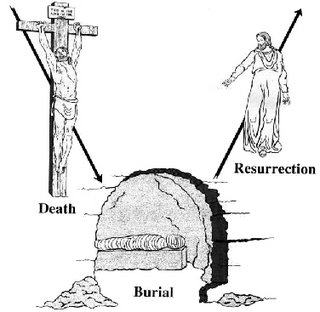
I sometimes wish I'd taken the blue pill
If you haven’t seen the movie The Matrix, you won’t recognize the reference. At one point in the movie, Keanu Reeves is offered a choice: take a red pill and come to see the reality of life in the Matrix or take a blue pill and go back to peaceful ignorance. Reeves takes the red pill, of course, or there wouldn’t have been much of a movie. One of the other characters later says to him: “I know what you're thinking, 'cause right now I'm thinking the same thing. Actually, I've been thinking it ever since I got here: Why oh why didn't I take the BLUE pill?”
As I look at my life, I sometimes wish that I could have taken the blue pill. There was a time when I knew everything, especially when it came to religion. The main thing that I knew was who to get the answers from. If there was something that I was unsure about, I could find someone at church to tell me what to believe. We had an exclusive lock on the truth, an exclusive lock on salvation. People that didn’t agree with us were either ignorant or rebellious. Anyone who honestly studied the Bible would come to exactly the same conclusions we had arrived at.
Somewhere along the way, I swallowed the red pill. I learned that there was a difference between studying the Bible and studying what someone said about the Bible. I learned that many of the views that I saw so clearly in the Bible could only be seen there if you started out with those views. I also learned that the Bible is living and active and refuses to be dominated by man; the Word of God must master us; we will never master it.
I sometimes look longingly at life under the effects of the blue pill. A friend encountered a preacher, a 35-year-old scholar, who had written a book on biblical interpretation. My friend asked the man if there was any chance that he was wrong about anything in that book. The confident author replied: “No.” He had come to an understanding on everything, and his mission in life was to help other people come to that understanding. Part of me envies that. Part of me thinks that evangelism would be easier under those circumstances. It’s cut and dried, black and white. You’re in my circle or you’re out. You agree with me or you’re wrong. Unfortunately, I no longer see the world that way.
The whole premise of the Kitchen of Half-Baked Thoughts is that I don’t have all the answers. The more I study, the more questions I get, so I share them with my intelligent friends, hoping for insights. I don’t really want to go back to a blue pill life, but I sometimes long for its simplicity. Yet I know that I’m better off digging and searching, looking for God’s truth, listening for God’s voice, being willing to put aside previous beliefs in favor of eternal truths. It’s definitely the harder life, but there’s no going back.



